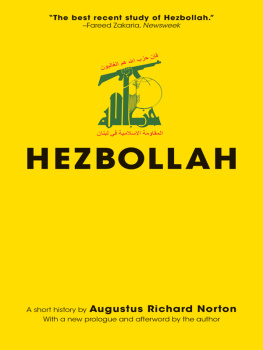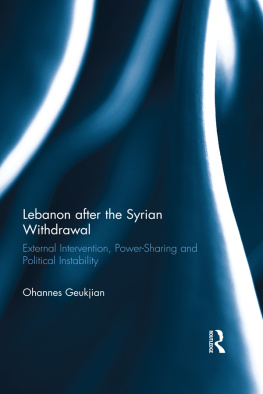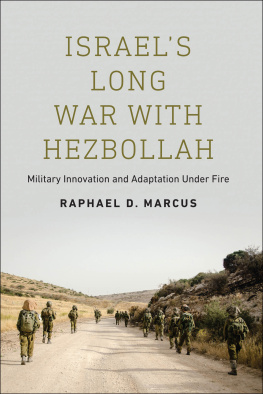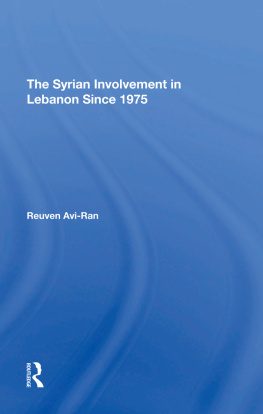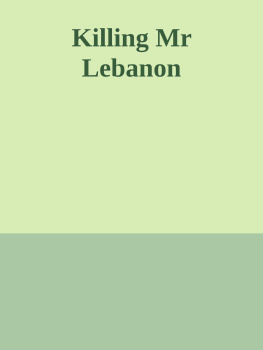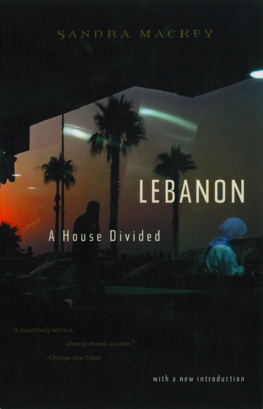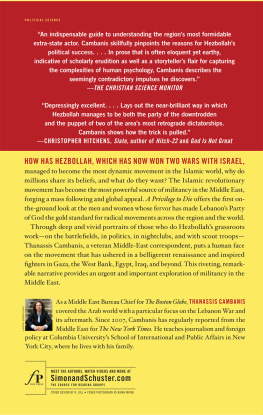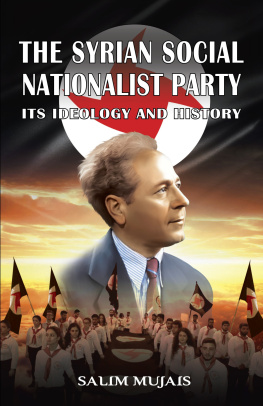

Princeton Studies in Muslim Politics
Dale F. Eickelman and Augustus Richard Norton, Editors
Diane Singerman, Avenues of Participation: Family, Politics, and Networks in Urban Quarters of Cairo
Tone Bringa, Being Muslim the Bosnian Way: Identity and Community in a Central Bosnian Village
Dale F. Eickelman and James Piscatori, Muslim Politics
Bruce B. Lawrence, Shattering the Myth: Islam beyond Violence
Ziba Mir-Hosseini, Islam and Gender: The Religious Debate in Contemporary Iran
Robert W. Hefner, Civil Islam: Muslims and Democratization in Indonesia
Muhammad Qasim Zaman, The Ulama in Contemporary Islam: Custodians of Change
Michael G. Peletz, Islamic Modern: Religious Courts and Cultural Politics in Malaysia
Oskar Verkaaik, Migrants and Militants: Fun, Islam, and Urban Violence in Pakistan
Laetitia Bucaille, Growing up Palestinian: Israeli Occupation and the Intifada Generation
Robert W. Hefner, editor, Remaking Muslim Politics: Pluralism, Contestation, Democratization
Lara Deeb, An Enchanted Modern: Gender and Public Piety in Shii Lebanon
Roxanne L. Euben, Journeys to the Other Shore: Muslim and Western Travelers in Search of Knowledge
Loren D. Lybarger, Identity and Religion in Palestine: The Struggle between Islamism and Secularism in the Occupied Territories
Robert W. Hefner and Muhammad Qasim Zaman, eds., Schooling Islam: The Culture and Politics of Modern Muslim Education
Augustus Richard Norton, Hezbollah: A Short History
Loren D. Lybarger, Identity and Religion in Palestine: The Struggle between Islamism and Secularism in the Occupied Territories
Bruce K. Rutherford, Egypt after Mubarak: Liberalism, Islam, and Democracy in the Arab World
HEZBOLLAH
A Short History
With a new afterword by the author
Augustus Richard Norton
PRINCETON UNIVERSITY PRESS
PRINCETON AND OXFORD
Copyright 2007 by Princeton University Press
Published by Princeton University Press, 41 William Street,
Princeton, New Jersey 08540
In the United Kingdom: Princeton University Press, 6 Oxford Street,
Woodstock, Oxfordshire OX20 1TW
All Rights Reserved
First printing, 2007
Fifth printing, and first paperback printing,
with a new afterword by the author, 2009
New paperback edition,
with a new prologue and afterword by the author, 2014
Paperback ISBN: 978-0-691-16081-8
Library of Congress Control Number 2013957455
British Library Cataloging-in-Publication Data is available
This book has been composed in Goudy and Avant Garde
Printed on acid-free paper.
press.princeton.edu
Printed in the United States of America
10 9 8 7 6 5 4 3 2 1
Prologue to the New Paperback Edition
M y work on the Shii community began in tumultuous times many years ago. The Shah of Iran had been toppled, Iraq was about to invade Iran (launching a savage eight-year war), and Lebanon, ever permeable to external influence, was divided into militia fiefdoms supported by regional and global rivals. Next door in Syria, the legitimacy of the al-Asad regime was being challenged by Islamist opponents who would soon be pitilessly obliterated along with much of the city of Hama in 1981. The most significant non-state actor in the Arab world was the PLO, then dismissed by Israel as terrorist. Shii Hezbollah did not yet exist (its establishment is discussed in ).
In the 35 years that have passed, the country has enjoyed some peaceful, prosperous interludes, and some Lebanese have managed to insulate themselves from disorder and violence or lose themselves in the rampant consumerism of Beirut. Others have made new lives as expatriates. For all too many Lebanese, however, it is sobering to consider how often invasion, warfare, dislocation, or the threat of impending disaster have impinged on daily life. Too many of the Lebanese whom I first encountered in the early 1980s or later have died violently: three were assassinated; others fell in battle or were otherwise victims of violence. As this updated version of Hezbollah goes to press, civil war rages in Syria and ominous storm clouds hang over Lebanon, where bad weather hardly stops at the border.
Inspired by the initial successes of the Arab Spring, Syrians mounted peaceful demonstrations beginning in March 2011. The Damascus regime responded ruthlessly. Of course, the iron fist response failed to squash the protests, and as the opposition turned to bullets and bombs, floods of refugees began to cross borders into neighboring countries, including in Lebanon, where more than one million refugees from Syria sought safety by the end of 2013. Considering that Lebanons population is just four million, the refugee crisis alone has been calamitous for the small countrys stability and treasury.
In contrast to Syria, only a handful of Lebanese were inspired by the initial success of massive protests in Tunisia and Egypt to take to the streets shouting irhal (leave/scram). Changing the government in Lebanon would accomplish very little, because political and economic power rests largely in patronage networks, political movements, and political parties, as exemplified by Hezbollah.
Hezbollahs initial response to the Arab Spring demonstrations was calm and self-assured. When Egyptian president Husni Mubarak was toppled in February 2011, many Hezbollah supporters were gleeful that an arch foe, who had lent strong support to the Shii groups Lebanese rivals, had fallen from power. There was little concern that the groups close ally in Damascus would be threatened at all. It turned out that Hezbollah shared in the Syrian governments self-delusions. Al-Asads armed forces not only failed to suppress its internal opposition but also precipitated a civil war that imposed destitution, death, and destruction on its own citizens.
As for Iran, whose government has close ties with Hezbollah, leading regime figures incredulously claimed that the Islamic Revolution had inspired the Arab Spring. Even before the Arab Spring, Saudi-Iranian jousting was already the main event in Lebanon; with the developing civil war in neighboring Syria, it has become a blood sport. Although Hezbollah extolled its Iranian allys virtues, the squashing of the reformist Green Movement protests in Iran during 2009 received wide play in the Arab media, and the Iranian regime was widely viewed in Arab countries as both repressive and alien.
Many Lebanese would naturally prefer to keep these regional catastrophes at arms length, praying that what happens in Syria, in particular, stays in Syria. This is not happening. Notwithstanding the efforts of leading Lebanese political figures to avoid entanglement in Syria and maintain a neutral stance of disassociation, the creeping encroachment of the Syrian civil war has proven unstoppable. The two countries are intertwined economically, culturally, and politically. Well before Hezbollahs high profile intervention in Syria bolstered the regime in the spring of 2013, cross border shoot-outs, ambushes, kidnappings, floods of Syrian refugees entering Lebanon, and the counter flow of Lebanese to join the fight in Syria dashed hopes for neutrality.
Although precise survey data is unavailable, my impression, which is shared by a number of other close observers, is that the Lebanese are more or less split half-and-half in terms of which side they support in Syria. Three decades of Syrian domination of Lebanon ended only in 2005, and many who suffered would celebrate the fall of the al-Asad regime. It must be said, however, that large numbers of Lebanese, including many Christians as well as Muslims, continue to see the Syrian regime in a more favorable light. They note that it has protected minorities and fear the prospect of a new regime in which extreme jihadist groups can gain significant power and potentially pose a lethal threat to those who do not embrace a Salafist interpretation of Islam.
Next page
